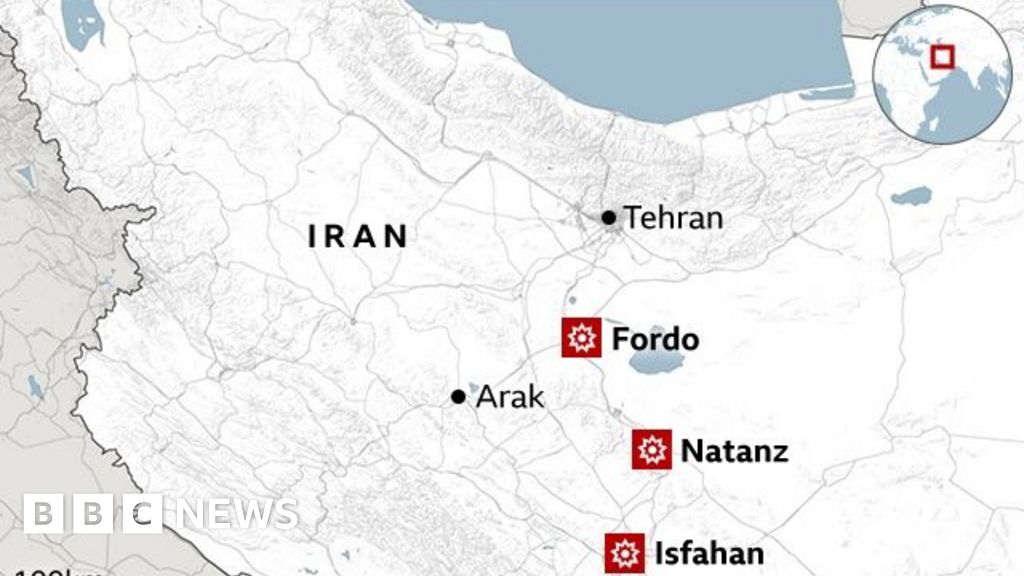
The US has changed the course of the conflict – how will Iran respond?
How did your country report this? Share your view in the comments.
Diverging Reports Breakdown
The US has changed the course of the conflict – how will Iran respond?
The US has changed the course of the conflict – how will Iran respond? The B2 bombers have undoubtedly changed the trajectory of the war. Whether it escalates even further will depend on how Iran and its allies respond. If the nuclear sites bombed last night are now indeed out of use then Israel’s prime minister will be able to declare his main war aim complete. But Netanyahu may have been denied a clear point at which Israel could say the nuclear threat had been definitively neutralised. Perhaps only regime change in Iran could have delivered that moment. Iran’s Supreme Leader Ayatollah Ali Khamenei had said a US military intervention would cause “irreparable damage”
1 hour ago Share Save Jo Floto Middle East bureau chief Reporting from Jerusalem Share Save
Trump says Iran must make peace or face future attacks after US strikes
As Benjamin Netanyahu stood at the podium in the Israeli prime minister’s office this morning, he did not at first address the Israeli people in Hebrew, to update them on the latest, dramatic development in this, his latest war. Instead he spoke in English, speaking directly to, and lavishing praise upon, US President Donald Trump after the US bombed Iranian nuclear sites. If Netanyahu’s tone was triumphant, and the smile barely suppressed, it is hardly surprising. He has spent most of his political career obsessed with the threat he believes Iran poses to Israel. Netanyahu has spent much of the last 15 years attempting to persuade his American allies that only military action (and only American munitions) could destroy Iran’s nuclear weapons programme. While congratulating Trump for a bold decision that “will change history”, Netanyahu can also congratulate himself on changing the mind of a US president who campaigned against overseas military adventures, and whose supporters were overwhelmingly opposed to joining Israel’s war against Iran. Follow live updates It should also be noted that Trump’s own intelligence agencies had not shared Israel’s assessment of how quickly Iran could seek to build a nuclear weapon, nor indeed whether it had taken the decision to do so. Throughout this conflict, which began just 10 days ago, Israel’s government and military have insisted that Israel had the capacity to deal with the Iranian threat on its own. But it was no secret that only America possessed the massive ordnance capable of dealing with the strongest levels of protection around Iran’s nuclear facilities, particularly at Fordo, built deep inside a mountain. If the nuclear sites bombed last night are now indeed out of use then Israel’s prime minister will be able to declare his main war aim complete, perhaps bringing this conflict closer to an end. For its part, Iran says it had already moved its nuclear material out.
But without last night’s bombing, Israel would have continued working its way down the long list of targets its air force has spent years drawing up. Damage would continue to have been inflicted on the Iranian military, on its commanders, on nuclear scientists, on government infrastructure and on the parts of the nuclear programme accessible to Israel’s bombs. But Netanyahu may have been denied a clear point at which Israel could say the nuclear threat had been definitively neutralised. Perhaps only regime change in Iran could have delivered that moment. The B2 bombers have undoubtedly changed the trajectory of the war. Whether it escalates even further will depend on how Iran and its allies respond. Last week Iran’s supreme leader had vowed to hit back at the US were it to enter the war. “The Americans should know that any US military intervention will undoubtedly be accompanied by irreparable damage,” Ayatollah Ali Khamenei said.
EPA Iran’s Supreme Leader Ayatollah Ali Khamenei had said a US military intervention would cause “irreparable damage”
Source: https://www.bbc.com/news/articles/c9dgpjqg12lo
